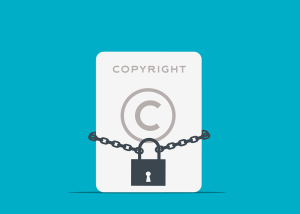
Science for Sale – Commercialization of Scientific Innovations & Technology
6 min read
There is secret to any trade, including science. To thrive in this highly competitive environment and capitalistic society, we, as scientists, feel compelled to keep our trade secrets. It has been normalized to intrinsically think that we have to protect and possess our knowledge and discoveries all to ourselves.
Science has always been a pursuit driven by curiosity and the desire to improve the human condition. However, the convergence of science and commerce has given rise to a troubling trend: the patenting and commercialization of scientific discoveries. While the motivation behind such practices may seem logical from a business perspective, the effects on scientific progress and public health are cause for concern.
The Patent Paradox

Patenting, commercialization, licensing, startups, and spin-offs are now common incentives and outcomes to scientific innovations. Patents were originally designed to protect inventors’ rights and foster innovation by rewarding inventors a time-limited market monopoly. In theory, the society will ultimately benefit from the invention when it goes into the public domain after the patent expires. While the proprietarization and monetization of inventions are also intended as means to bring science from bench to the world, such unyielding pathway to market can create more problems than it solves and cultivate a distorted motivation to innovate. The very essence of science revolves around the free exchange of knowledge and collaborative efforts. Unfortunately, the drive for profits has led to a situation where important scientific breakthroughs are guarded under lock and key, limiting their potential impacts on the public.
The Toll on Scientific Progress
The emphasis on securing patents and profiting from scientific discoveries can stifle collaboration and hinder the sharing of knowledge among researchers. This slows down the pace of scientific advancement and deprives society of potential breakthroughs that could have far-reaching benefits.
Innovations and discoveries from many publicly funded research are imprisoned for decades under patent restrictions. While non-profit academic research becomes more corporate, research institutions take advantage of this loophole to selfishly possess scientific innovations that are made possible using taxpayers’ money and eventually the profits generated from them. As a taxpayer myself, I often question whether my tax contribution to public research justly benefit me in the end?
It is disconcerting that patenting is highly glorified in the academic world as scientists assert ownership and potential market share of their innovations. Being part of two patents filed from my PhD work, I was once naively proud of this process of limiting cancer patients’ access to our discoveries. My supervisor at that time had a different narrative – “Commercialization of our discoveries is bringing new treatments closer to patients”, I remember vividly. Is patenting and commercialization truly making scientific developments more publicly accessible? While we are trapped in this systemic capitalistic problem, I am not asking you to villainize patent filing, but to re-evaluate our intentions to invent and make discoveries.
Public or private health: A Price Tag on Survival

The current patent system is undeniably exploited by industry. Big pharmas and biotech companies monopolize the markets with low quality patents as legitimate business strategies. The lack of healthy market competition drives the costs of healthcare and medical treatments. Skyrocketing drug prices limit public access to treatments that they need and lead to loss of lives, not because the treatment did not exist, but because people could not afford them. If you’re privileged and fortunate to reside in a country with subsidized healthcare, these price tags may not directly impact you. However, they ultimately trickle down to the allocation of resources by the government.
Vaccine Access
The COVID-19 pandemic has starkly highlighted the disparities in global vaccine distribution. Despite the urgent need for effective vaccines, patent protections and exclusive licensing agreements have limited access to these life-saving interventions, particularly in low-income countries. This has resulted in a moral dilemma where profit motives hinder efforts to combat a global health crisis.
No one is safe, until everyone is. – United Nations
HIV Treatment
The case of HIV treatment provides another glaring example of the effects of patenting and commercialization on public health. Antiretroviral drugs have revolutionized the treatment of HIV/AIDS, allowing individuals to live longer and healthier lives. However, the exorbitant costs of these medications have made them inaccessible to many in need. Patent restrictions and monopolies have contributed to the perpetuation of this dire situation, preventing affordable generic versions from entering the market.
Insulin

Insulin, a life-sustaining medication for people with diabetes, has also fallen victim to the grip of profit-oriented practices. Despite the discovery of insulin nearly a century ago, its escalating cost has made it unaffordable for many patients, leading to heartbreaking choices between buying insulin and other basic necessities. Patent protections and lack of competition have allowed pharmaceutical companies to exploit the market, putting profits above the well-being of those who rely on this vital hormone.
The Way Forward
While it is important to recognize the role of profit incentives in driving scientific innovation, it is equally crucial to strike a balance that ensures access to scientific advancements for the betterment of public health. Efforts are underway to reform patent laws and explore alternative models, such as open-source drug discovery, which promote the collective good over individual profit. For instance, the Open Insulin Project, a community-driven initiative, seeks to produce affordable and accessible insulin through open-source collaboration. This project demonstrates the potential of a different approach, one that prioritizes public health and scientific progress over exclusive commercial interests.
The patenting and commercialization of science have created a host of problems, particularly in terms of public health and scientific progress. Access to life-saving vaccines, essential medications, and groundbreaking discoveries should not be hindered by profit-driven motives. As a society, we must strive to strike a balance between innovation and equitable access to scientific advancements. By doing so, we can ensure that the true potential of science is harnessed for the benefit of all humanity.
Et cetera
If you want to learn more about this topic, below are some resources that I’ve referenced.
Listen:
- SCAS TALKS Episode 47 – Valbona Muzaka: ”Vaccines in times of financialisation”
- TED Radio Hour – Bucking the System
Read:
queerioushazel
Queer | Vegan | Scientist studying aging | Exploring writing | Curious about everything

0 comments